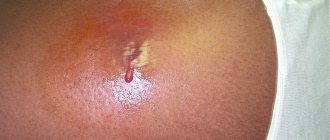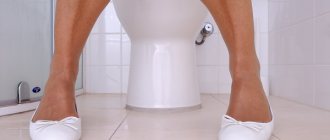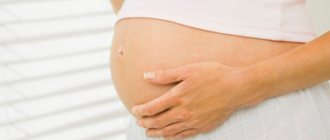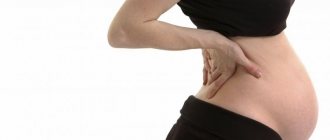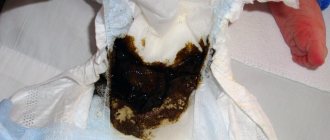Pregnancy is a time when the body presents a woman with a wide variety of surprises. Of course, many of them are pleasant and long-awaited, but there are also those that slightly overshadow this wonderful period. The fact is that women, especially those who are in an interesting position for the first time, sometimes cannot understand how to react, whether they should panic or not. This article is dedicated to the topic of loose stools during pregnancy, and in it we will look at situations in which its occurrence is normal and those cases when it is a minor or serious problem.
Causes of the unpleasant phenomenon
Diarrhea during pregnancy in the third trimester can be caused by a number of factors, so only the attending physician can determine what the problem is. According to statistics, every person experiences diarrhea 2-3 times a year. This may be due to poor diet or viral infection. Moreover, the severity of the disease can also vary. There is acute diarrhea, which most often results from various infections and viruses entering the body. The duration of the course is usually several days.
If it lasts for up to several weeks, persistent diarrhea is diagnosed. Finally, if this condition lasts more than a month, then we can assume chronic diarrhea, which is associated with serious illness.
But these are data that are valid for everyone. And diarrhea during pregnancy in the third trimester is an even more complex phenomenon that may have its own reasons.
Prevention
To avoid diarrhea in expectant mothers, it is worth following some rules so that in the future the need for prompt treatment does not become an obvious nuisance on the path to the healthy development of the child and the course of the gestation period.
For the safety of your own body and your unborn baby, it is important to pay attention to the following points:
- drinking normal amounts of fluid;
- refusal to eat junk food and food sold in unknown catering places;
- compliance with personal hygiene rules;
- taking special vitamins prescribed by your doctor;
- establishing a balanced diet, excluding harmful foods from it - fried, spicy, fatty foods.
By following these instructions, it is possible to avoid the risk of infection and development of the disease. Competent therapy and prevention will protect the fetus and maternal body from negative environmental influences and disruptions to their usual lifestyle.
Features of digestion of the expectant mother
Even the most insignificant reasons can cause diarrhea during this difficult period. Serious changes are taking place in the body, and a woman is exposed to environmental influences more than ever. All energy is spent on the formation and development of the fetus, the immune system is greatly weakened, and digestion reacts sharply to any influences from the external environment.
That is why diarrhea during pregnancy, in the third trimester, can be caused by the most neutral reasons. For example, regular exercise can increase motor skills and cause short-term diarrhea. A diet rich in vitamins and fiber can also stimulate the liquefaction of stool. And taking synthetic complexes (vitamins and minerals) can cause diarrhea in the last weeks, even if before that you drank them throughout the entire period.
The hormonal changes in the body that occur throughout pregnancy can themselves cause problems with the intestines, which can result in diarrhea or constipation. And in the last weeks, immediately before giving birth, this is generally a normal phenomenon that should not scare you. The body is simply preparing for the upcoming birth.
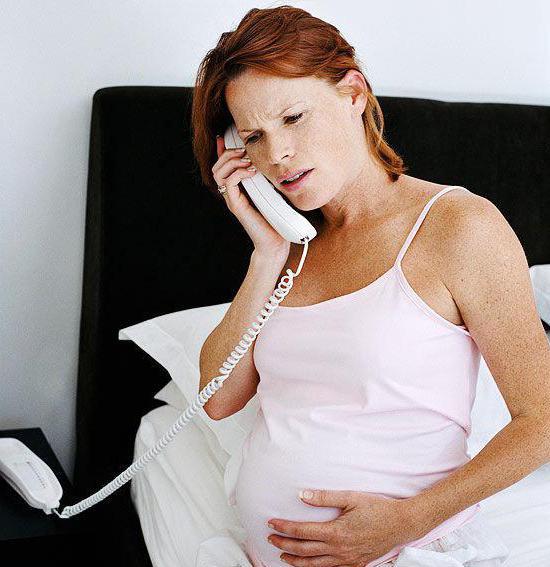
Stool color during pregnancy
During pregnancy, the work of all organs and systems of the expectant mother changes significantly. Due to the proximity to the reproductive organs, the gastrointestinal tract begins to function differently.
All changes can be reflected in the color and shape of feces. Let's take a closer look at what color stool can be during pregnancy.
Light brown
The physiological cause of the appearance of light-colored feces, including diarrhea, can be the consumption of large quantities of colorless foods: potatoes, turnips, radishes, white poultry meat. Also, stool may lighten when taking certain medications and vitamin-mineral complexes, for example, drugs for gout, some antibiotics and anti-inflammatory drugs.
Pathological reasons for the appearance of light brown feces arise from the growing pressure of the uterus on surrounding organs. As a result, chronic gastrointestinal diseases may worsen, including those associated with problems with the production of enzymes, such as cholecystitis, cholangitis, pancreatitis and others.
Green
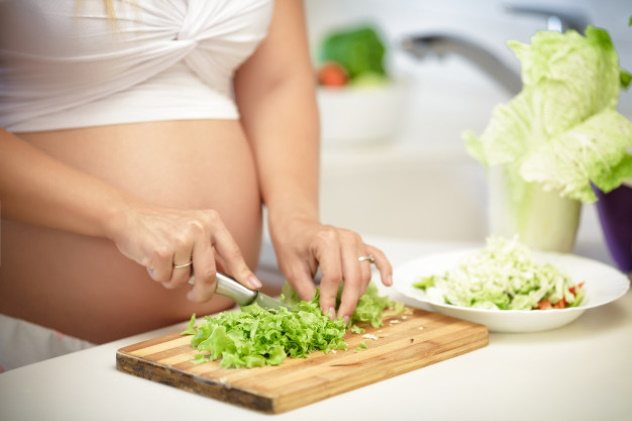
When eating large amounts of green vegetables, a pregnant woman's stool may take on a characteristic color. This is not a pathology; before you start panicking about green feces, you need to evaluate your diet. Excessive indulgence in vegetables and fruits can change not only the color, but also the consistency of the stool - causing diarrhea.
At the same time, green feces may be the first sign of the development of an infectious pathology in the intestinal cavity. Also, green streaks in the stool can be a sign of an exacerbation of a chronic disease - celiac disease.
Consult a doctor
Of course, we have not listed all the situations when diarrhea occurs during pregnancy in the third trimester. The reasons may be much more serious. Poisoning with any toxins can cause severe diarrhea and also have a detrimental effect on the baby’s condition. The second option is the entry of protozoa into the body, namely dysenteric amoeba, which without proper correction can cause dehydration. Viral diseases at this stage of bearing a child can also be very dangerous, which means do not waste time on reasoning, go straight to the hospital.
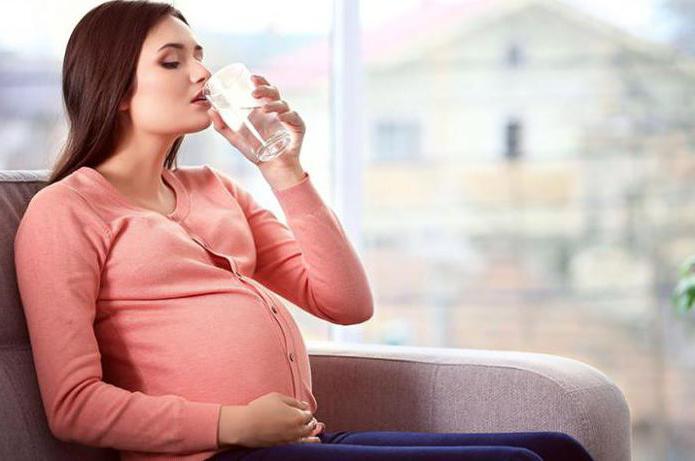
Alarming symptoms
Diarrhea during pregnancy in the third trimester can manifest itself in different ways. However, there are a number of symptoms that should not go unnoticed. Diarrhea is not a disease, but only a signal that signals the development of a particular illness. When diarrhea occurs, the following symptoms may appear:
- Severe nausea, possibly accompanied by vomiting.
- Increase in general body temperature.
- Strong gas formation.
- Pain and general weakness.
- Chills and headache.
The last two symptoms indicate that the condition may worsen further, therefore, without wasting time, you need to consult a doctor. In addition, alarming symptoms are the appearance of mucus with blood in the stool, high fever and vomiting that accompany diarrhea, as well as a dark, almost black color of the stool.
Depending on a number of factors, diarrhea can last from one to ten days. Of course, you can’t expect everything to go away on its own. Now we will look at how diarrhea can be dangerous for an expectant mother.
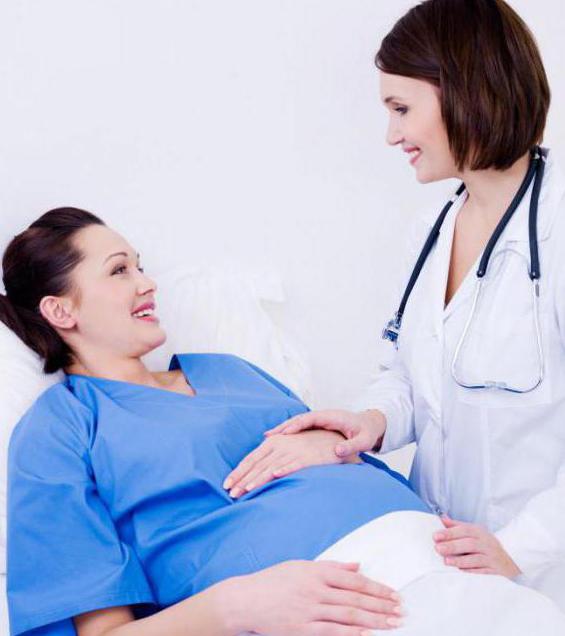
Types of loose stools
The phrase “loose stool” is not an entirely accurate description of it; it can be of various types:
- Watery.
- Foamy.
- Mushy.
- The stool may contain blood and mucus.
All this may be accompanied by nausea, vomiting, bloating, flatulence, weakness and pain in the lower abdomen. What this is connected with and how to deal with it will be described below.

You need to know this
In the early stages, any bacteria, viruses and toxins that enter the body also reach the fetus. Therefore, even with a minor disorder, you should immediately contact a specialist and follow all the recommendations that will be prescribed. Diarrhea during this period can block the access of vitamins and nutrients to the fetus, and also cause severe dehydration. Moreover, with severe diarrhea, the uterus will spontaneously contract, which means this will lead to abnormal development of the fetus in the early stages or even miscarriage.
Now about the consequences of loose stools
- A long duration of even simple loose stools, without any other symptoms, can cause considerable damage to the body of both mother and baby. Frequent emptying of the rectum and loose stools contribute to the constant removal of water from the pregnant woman’s body. This can lead to dehydration, first for the mother and then for the baby.
- Also, frequent contractions of the intestines can lead to contractions of the uterus. The consequence of this may be miscarriage or premature birth.
- If an intestinal infection is too advanced, the consequences can be very dire.
Loose stools associated with these reasons can occur in the first, second, and third trimesters of pregnancy.

Why is diarrhea dangerous in later stages?
Of course, at this time the baby is already protected by the placenta, which means that bacteria and viruses are not so scary for him. Moreover, at this time it is already allowed to take certain medications, which greatly facilitates therapy. By the way, diarrhea at week 30 does not always indicate a viral disease. Often it is during this period that late toxicosis appears. This means you will experience nausea, weakness, and diarrhea is quite possible. But despite this, everything is not so rosy.
The thirtieth week of pregnancy is a turning point, which means you need to be careful. On the one hand, with natural urges, the uterus begins to contract, and this is fraught with the onset of premature labor. And at this stage it is still difficult for the baby to survive without additional medical care.
There is one more important point that should not be forgotten. At 30 weeks, dehydration is very dangerous. It can cause thrombosis, a dangerous complication that is not easy to eliminate without serious medical intervention.
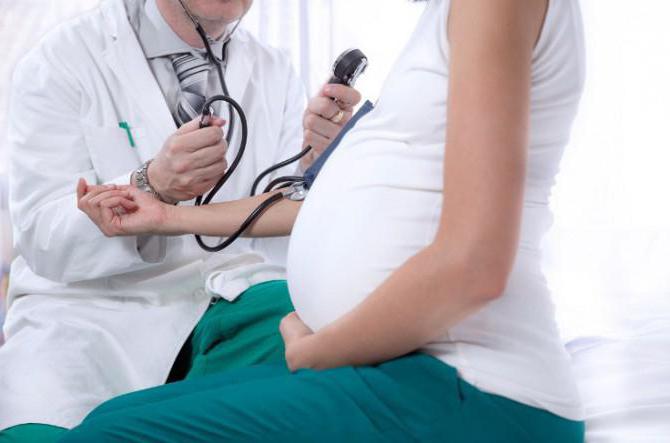
Diarrhea before childbirth
From 35 to 41 weeks inclusive, sudden diarrhea may indicate that labor is beginning. Moreover, at 35 weeks this is still completely undesirable, since the baby may be born too weak. Therefore, during this period you need to carefully monitor your diet and spend less time in public places where you can catch viral diseases.
The body is already tired of pregnancy, and the fetus has become large and puts a lot of pressure on the walls of the internal organs. Therefore, diarrhea and constipation are not uncommon guests. This period is also different in that the baby is very actively gaining fat tissue, which means the need for nutrients is high. Diarrhea provokes rapid cleansing of the intestines, which means that few useful microelements are retained. And the fetus will suffer from a lack of vital substances. The mother's dehydrated body is greatly weakened, and childbirth is coming soon, which will require a lot of strength. The danger of thrombosis also remains.
If diarrhea occurs at 38-40 weeks and is accompanied by cramping pain, then most likely you need to go to the maternity hospital. In nature, everything is provided for, and the body simply turns on self-cleaning mechanisms. Doctors react quite calmly to such incidents, advising them to drink more water. As you can see, under completely different circumstances, diarrhea can begin during pregnancy in the third trimester. The reasons for this may be very different, but the woman’s reaction should always be the same. Lie down, relax and analyze your condition. If, in addition to loose stools, you feel other symptoms (dizziness, pain, nausea), then call an ambulance.
Treatment
What should an expectant mother do if diarrhea occurs during pregnancy, in the third trimester. Treatment begins with a special diet. It is nutrition correction that can quickly alleviate the condition. On the first day, limit your diet to weak broth (lean beef is best) and a few crackers. For drinks, weak tea and fruit drinks with natural berries (currants or cranberries) are good options.
On the second day, if there is no severe nausea, you can gradually introduce boiled carrots and lean beef, light soups with noodles and rice into the diet. For about a week, a gentle diet should be followed, the basis of which is noodles and rice, bananas and salty cookies, as well as the listed products.
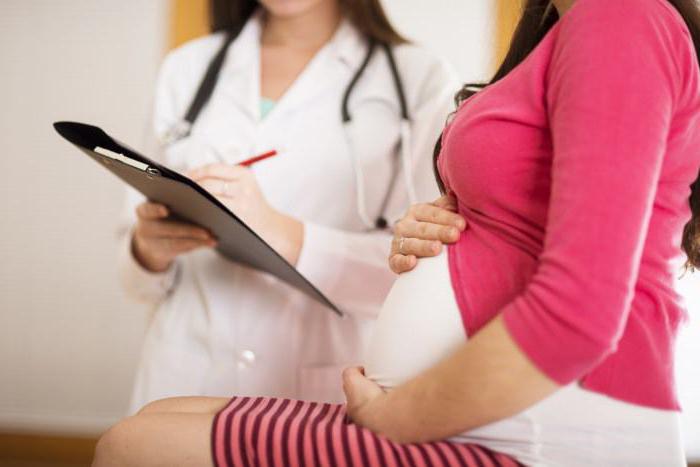
What are we going to drink?
If we talk about adsorbents, they are completely safe for the baby.
This group includes:
- Enterosgel;
- Lactofiltrum;
- Smecta.
And if the problem is in the stomach, then enzyme preparations are used.
These include:
- Creon.
- Mezim.
Drinking regime is required. The norm is 3.5 liters of water, saline solution or herbal infusion. By the way, if you prefer traditional medicine recipes, then you need to be careful here too - not all herbs are suitable for pregnancy.
You can safely use:
- rice water;
- water with potato starch;
- decoction with blackberry leaves.
Herbal teas with good old chamomile and lemon balm work well; oak bark and wormwood help. It is important to know if you are allergic to herbs and herbs.
Bifidobacteria and lactobacilli
In parallel with the diet, it is very good to introduce foods into the diet that help digestion recover. These are natural yoghurts, but not those in bright jars that are sold in mass quantities in stores. We are talking about live products whose shelf life does not exceed several days. This is natural “Narine”, which you can buy ready-made or prepare at home from a special starter. In mild cases, this is enough for diarrhea during pregnancy to quickly subside in the third trimester. Only your personal doctor can advise how to treat it. During pregnancy, no pill should be taken without first consulting a specialist.
How to protect yourself from loose stools and its consequences
If hormones have decided that your pregnancy should go through this, then there is nothing you can do in advance. But, in other cases, you can protect yourself. How:
- Proper, healthy nutrition. During pregnancy, the body already works hard, and then there’s fried, heavy food. There is no need to create unnecessary problems for yourself.
- High quality and fresh food. Fresh fruits, vegetables and berries in reasonable quantities will never do any harm. And when buying products with a minimum shelf life, pay attention to the production date and shelf life.
- Pregnancy is not a time when you can do whatever you want. If you absolutely do not want to eat, you still need to at least have something to snack on for the sake of your baby. Conversely, you should not overeat. It is better to eat little and often.
- Intestinal infections are easy to avoid, the main thing is to maintain hygiene. Hand washing is never unnecessary. Vegetables, fruits, and berries must be washed carefully. The food must also be clean or well-cooked.
- It’s also not worth eating anywhere, even if the food is fresh, you don’t know who prepared this food and how. It may accidentally contain a virus, bacteria or eggs of some parasites.

ethnoscience
Our grandmothers knew many recipes that can quickly and effectively stop diarrhea during pregnancy in the third trimester. We will now tell you how to treat diarrhea.
- A decoction of oatmeal is very useful. To do this, pour 50 g into two glasses of boiling water and let stand for 4 hours. The resulting infusion must be boiled until mucus forms. Take 2 tablespoons, six times a day.
- Jelly made from blueberries and rose hips.
- Sloe tea - if you managed to stock up on this berry in the summer, you can brew yourself a healthy drink. To do this, pour two teaspoons of chopped berries with a glass of boiling water and keep on low heat for 15 minutes. This is the daily dose.
All medications can be used by a pregnant woman only after consulting a doctor and passing basic tests. But the most important thing is that you yourself must correctly assess your condition. If the diarrhea is not severe, without pain or fever, then it may be enough to take Smecta and follow a gentle diet for several days. But if the condition worsens and the diarrhea does not stop, then call an ambulance.



